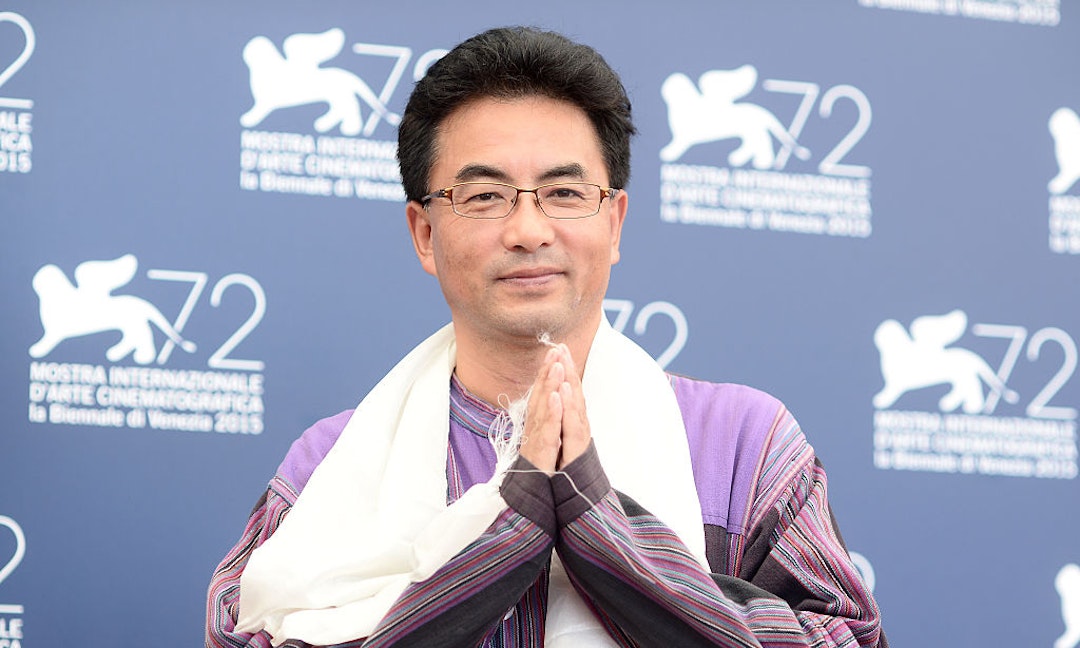
Acclaimed Tibetan director Pema Tseden died unexpectedly on May 8, 2023, at the age of 53. Known in China under his Tibetan name པད་མ་ཚེ་བརྟན།, as well as under his Chinese name Wanma Caidan (万玛才旦), he is considered one of the most prominent Tibetan filmmakers who amplified modern Tibetan culture and society both inside and outside of China, thanks to numerous awards he won for his cinematic and literary work. This South China Morning Post video pays tribute to Tseden’s work:
Pema Tseden was born in a traditional Tibetan family in Qinghai province in China, part of the larger historical Tibet region. He studied Tibetan literature and worked as a school teacher before joining the Beijing Film Academy, where he was the first-ever student from Tibet.
His films are entirely in the Tibetan language and typically depict the lives of Tibetans living in Chinese society. He debuted in 2011 with his movie “Old Dog,” which evokes the craze for Tibetan mastiffs, which were popular among Chinese buyers in the late 2000s and early 2010s, with some dogs selling for nearly US$3 million. The movie is accessible here:
Some of his movies are also adaptations of his own fiction writing, such as his masterpiece “Tharlo,” which depicts a Tibetan man going to town to get his Chinese ID and discovering unknown and largely incomprehensible codes of Chinese urban society. The film premiered in 2015 at the Venice Film Festival and was shot in black and white. The trailer for “Tharlo” is below:
In 2019, Pema Tseden released yet another movie, “Balloon,” that talks about birth control, a Beijing-imposed policy within the context of traditional Tibetan society, and the emancipation of Tibetan women, as can be seen in the trailer here:
Tibet was a de-facto independent state from 1912 to 1950. But in 1950, an armed invasion from China brought it under Beijing’s control. Today Tibetan culture is severely censored in China and comes under regular attacks by local authorities, mostly because of the prominence of the Dalai Lama as a global figure calling for autonomy for Tibet and demanding China respect human, cultural, and religious rights. Pema Tseden was even detained in 2016 and unable to access medical treatment despite his diabetes.
As the International Campaign for Tibet testifies:
At the 52nd session of the UN Human Rights Council currently underway in Geneva, the International Campaign for Tibet has once again called for an end to the mass forced resettlement of Tibetan nomads and herders and to the boarding school system for Tibetan children. Both are cornerstones of the Chinese government’s policy of assimilation of the Tibetan people.
As mentioned, Pema Tseden was also a writer of short stories, some of which are available in English and French. With his death, Tibetan culture has lost a voice that spoke with great humanity through images and words about the challenges and hardships of being Tibetan in 21st-century China.
This tweet shows how popular Pema Tseden is and how his memory is cherished in the Tibetan community:
The News Lens has been authorized to publish this article from Global Voices, a border-less, largely volunteer community of more than 1400 writers, analysts, online media experts, and translators.
READ NEXT: Who Are the Young Self-immolators in Tibet?
TNL Editor: Bryan Chou (@thenewslensintl)
If you enjoyed this article and want to receive more story updates in your news feed, please be sure to follow our Facebook.







